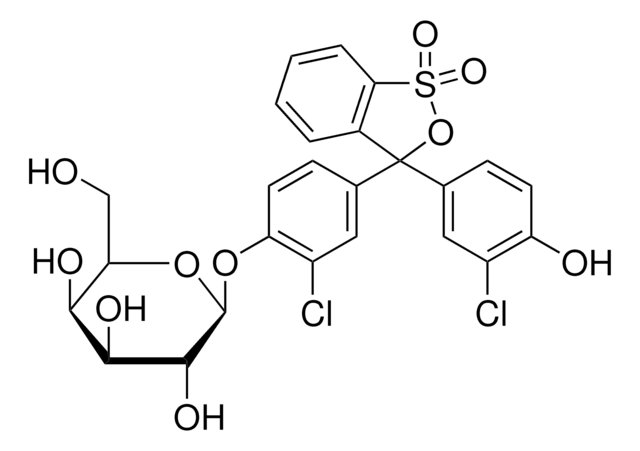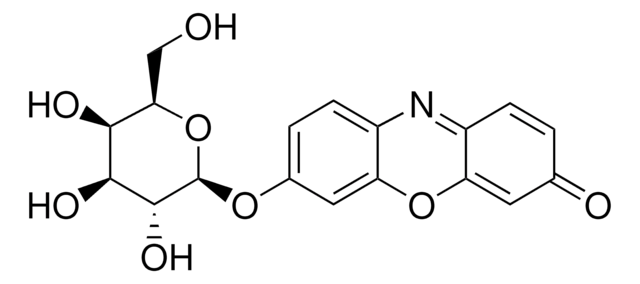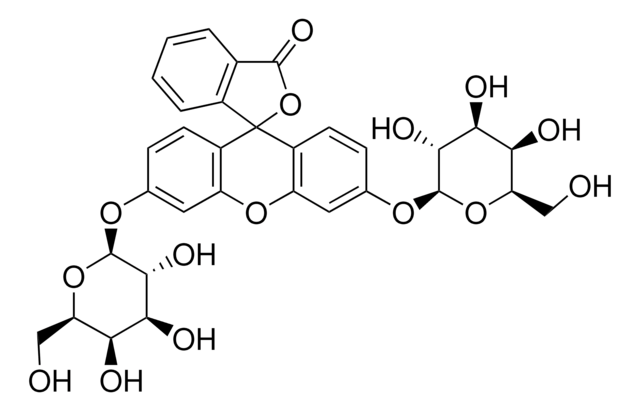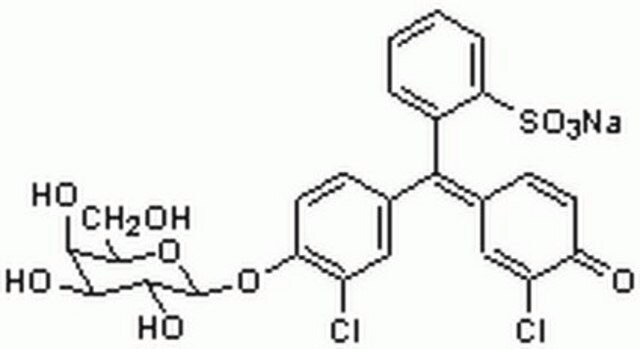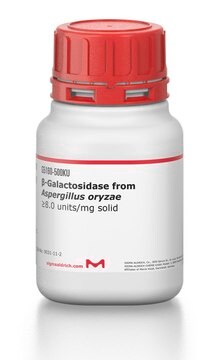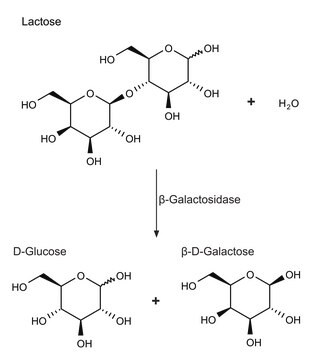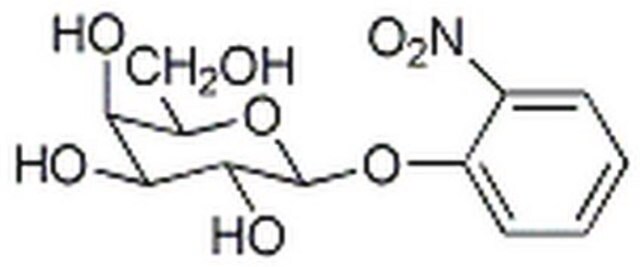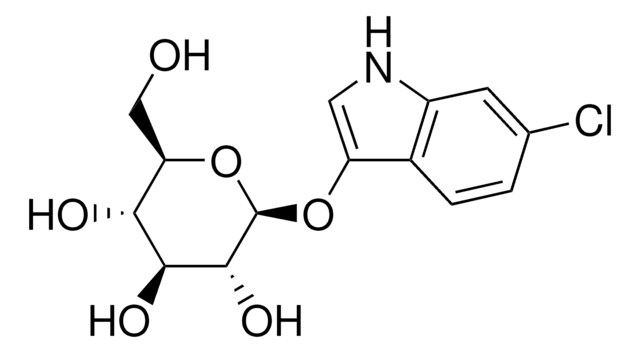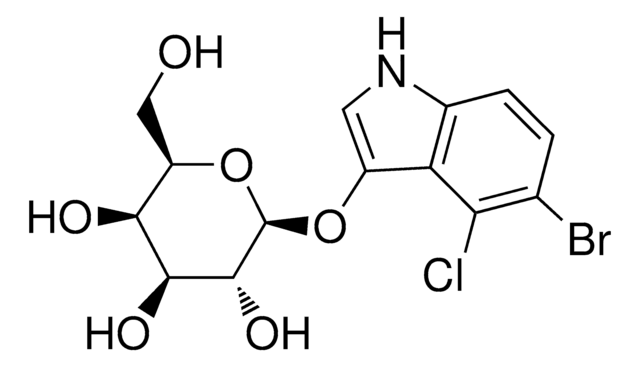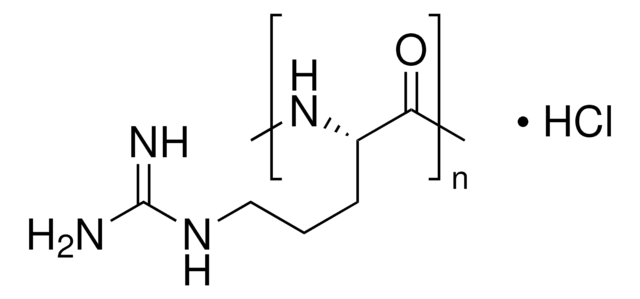59767
Chlorphenolrot-β-D-galactopyranosid
β-galactosidase, ≥90% (HPLC), powder or crystals
Synonym(e):
CPRG, Chlorphenol Rot β-D-galactosid
About This Item
Empfohlene Produkte
product name
Chlorphenolrot-β-D-galactopyranosid, ≥90% (HPLC)
Assay
≥90% (HPLC)
Form
powder or crystals
Löslichkeit
water: 20 mg/mL, clear, orange to very deep red
Lagertemp.
−20°C
SMILES String
OC[C@H]1O[C@@H](Oc2ccc(cc2Cl)C(=C3/C=CC(=O)C(Cl)=C3)\c4ccccc4S(O)(=O)=O)[C@H](O)[C@@H](O)[C@H]1O
InChI
1S/C25H22Cl2O10S/c26-15-9-12(5-7-17(15)29)21(14-3-1-2-4-20(14)38(33,34)35)13-6-8-18(16(27)10-13)36-25-24(32)23(31)22(30)19(11-28)37-25/h1-10,19,22-25,28,30-32H,11H2,(H,33,34,35)/b21-12-/t19-,22+,23+,24-,25-/m1/s1
InChIKey
YOUWVNCQJOMMEU-AETRGLENSA-N
Suchen Sie nach ähnlichen Produkten? Aufrufen Leitfaden zum Produktvergleich
Allgemeine Beschreibung
Anwendung
- in paper-based cell-free protein expression system for target RNA detection
- in colorimetric detection of multiple clinically relevant mutations using a lacZ output gene
- in colorimetric assay for bacteria quantification
Sonstige Hinweise
Lagerklassenschlüssel
11 - Combustible Solids
WGK
WGK 3
Flammpunkt (°F)
Not applicable
Flammpunkt (°C)
Not applicable
Persönliche Schutzausrüstung
Eyeshields, Gloves, type N95 (US)
Analysenzertifikate (COA)
Suchen Sie nach Analysenzertifikate (COA), indem Sie die Lot-/Chargennummer des Produkts eingeben. Lot- und Chargennummern sind auf dem Produktetikett hinter den Wörtern ‘Lot’ oder ‘Batch’ (Lot oder Charge) zu finden.
Besitzen Sie dieses Produkt bereits?
In der Dokumentenbibliothek finden Sie die Dokumentation zu den Produkten, die Sie kürzlich erworben haben.
Kunden haben sich ebenfalls angesehen
Unser Team von Wissenschaftlern verfügt über Erfahrung in allen Forschungsbereichen einschließlich Life Science, Materialwissenschaften, chemischer Synthese, Chromatographie, Analytik und vielen mehr..
Setzen Sie sich mit dem technischen Dienst in Verbindung.